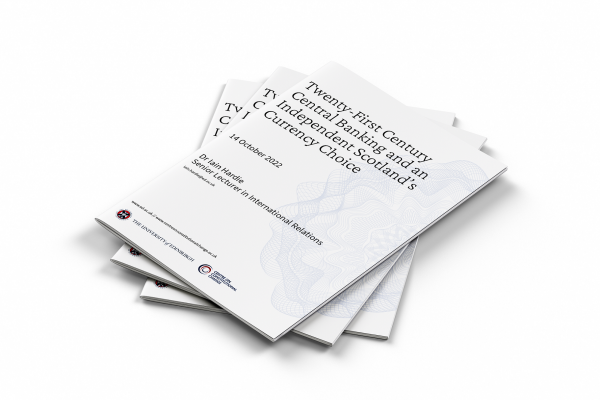A new currency would be better for an independent Scotland than an informal currency union with the UK, according to a new report on developments in central banking by the Centre on Constitutional Change.
The report says that changes in central banking since the global financial crisis – especially during the pandemic and in the aftermath of the recent mini-budget – have materially changed the nature of the current choice for an independent Scotland.
It says that ‘a new currency is now a far better alternative to an informal currency union with the remaining UK’.
The report – Twenty-First Century Central Banking and An Independent Scotland’s Currency Choice – is authored by Dr Iain Hardie, a Senior Lecturer in International Relations at the University of Edinburgh’s School of Social and Political Science. He is an expert on political economy, with a particular focus on financial globalisation, financial markets and government bond markets. The report is published by the University’s Centre on Constitutional Change.
Dr Hardie says that a new currency would allow maximum insulation from economic and political events in the remaining UK. In an informal currency union, he says, the impact of events similar to the recent mini-budget would still be felt on Scottish mortgages, pensions and currency.
His report also says that a new currency in an independent Scotland would allow money creation to ensure the full range of monetary policy. This includes the Scottish central bank acting as ‘buyer of last resort’ to maintain the government bond market and Scotland’s ability to borrow. This is not possible in an informal currency union.
Dr Hardie adds that an independent Scotland would still need to maintain responsible economic policies: “A new currency would not be a fiscal-free lunch and would require Scotland to establish a reputation for sound economic policies.
"However, having the full range of monetary policy options is essential for financial stability and the ability of an independent Scotland’s government to protect its citizens in crises, whether global or more local.”
The report notes that developments in central banking indicate that a Scottish central bank could also be involved in some of the most important political issues an independent Scotland will face. These include inequality, housing and climate change.
Dr Hardie added: “This further supports the case for a new currency, giving a central bank the full range of powers. In an informal union, decisions on these matters would be taken in London.”

